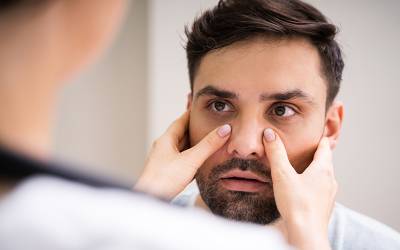
In a groundbreaking clinical trial, researchers from University College London (UCL) have demonstrated that sinus surgery is significantly more effective than antibiotics in treating chronic rhinosinusitis (CRS). The study, conducted in collaboration with the University of East Anglia and Guy’s and St Thomas’ NHS Foundation Trust, offers new hope for the one in ten UK adults affected by this debilitating condition.
Chronic rhinosinusitis, a persistent inflammation of the sinuses, presents symptoms similar to a severe cold, including a blocked and runny nose, loss of smell, facial pain, and increased respiratory issues like asthma. Unlike a common cold, CRS can last for months or even years, severely impacting the quality of life of those affected.
Clinical Trial Findings
The trial, a part of the MACRO programme, involved over 500 patients across the UK. Participants were randomly assigned to receive either sinus surgery, a three-month course of low-dose antibiotics, or a placebo, in addition to standard care with nasal steroids and saline rinses. According to the findings published in The Lancet, surgery provided significant relief, with 87% of patients reporting improved quality of life six months post-operation.
Conversely, the antibiotic regimen showed no significant benefit over the placebo, challenging the current reliance on medical treatment for CRS. These results could potentially shift treatment protocols, making surgery a more accessible option for patients.
Expert Opinions and Implications
Professor Carl Philpott from UEA’s Norwich Medical School, a chief investigator of the MACRO trial, emphasized the importance of these findings. “Until now, there was no evidence in the form of a trial that showed sinus surgery works better than medical treatment,” he stated. “This could be a real game-changer for sufferers worldwide.”
“We hope our findings will help reduce the length of time for patients to get treatment. Streamlining clinical pathways will help reduce unnecessary visits and consultations, and save on healthcare resources.” – Professor Carl Philpott
Meanwhile, Professor Claire Hopkins from Guy’s Hospital highlighted the trial’s potential impact on NHS practices. “The results should give patients and their referring primary care doctors more confidence in seeking treatment for chronic rhinosinusitis,” she said.
Collaborative Research and Future Directions
The MACRO trial represents a significant collaborative effort among leading UK institutions, funded by the National Institute for Health and Care Research. Professor Anne Schilder from the UCL Ear Institute, another key figure in the study, remarked on the trial’s success in providing robust evidence for the effectiveness of surgery in CRS treatment.
“The MACRO trial has shown the value of research collaboration, across specialties and organizations. It was the first NIHR programme grant for our specialty, recognizing the need for better evidence for the management of common ENT conditions.” – Professor Anne Schilder
Looking forward, the research team plans to evaluate the cost-effectiveness of sinus surgery and continue monitoring trial participants to assess the long-term benefits of surgical intervention. This ongoing research aims to further refine treatment strategies and improve patient outcomes.
Patient Perspectives
Jim Boardman, a MACRO patient representative, shared his personal experience with CRS. “I’ve lived under a cloud for years with CRS,” he said. “A clear path to successful treatment will be welcomed by all CRS sufferers.”
As the study progresses, it promises to bring much-needed clarity and hope to millions suffering from chronic rhinosinusitis, potentially transforming the landscape of treatment for this common yet challenging condition.






